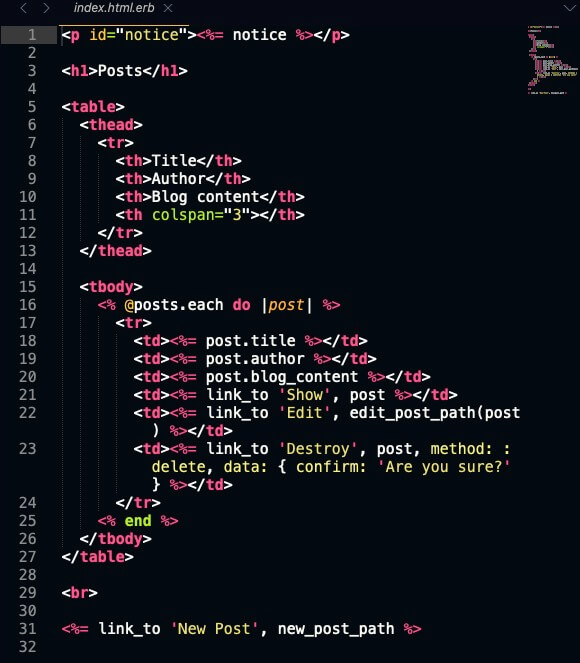Rise by Six: Your Daily Dose of Inspiration
Explore insights and stories that elevate your day.
Rails Roars: Why Your Next Project Should Be Built on Ruby
Unleash your project's potential with Ruby! Discover why Rails is the secret weapon for success in your next build.
5 Compelling Reasons to Choose Ruby on Rails for Your Next Project
Ruby on Rails is renowned for its rapid development capabilities, making it an excellent choice for startups and businesses looking to launch their projects quickly. Its convention over configuration principle allows developers to focus on writing code without getting bogged down in the intricacies of setup. This efficiency can significantly reduce the time to market, giving businesses a competitive edge. Additionally, the extensive libraries and tools that come pre-integrated with Ruby on Rails streamline processes, enabling teams to build robust applications without reinventing the wheel.
Another compelling reason to choose Ruby on Rails is its strong community support. The framework boasts an active and engaged community that contributes to a plethora of open-source libraries known as gems. These gems can enhance functionality without the need for extensive coding. Furthermore, the community is readily available to provide support, share best practices, and offer solutions to common challenges, ensuring that developers can overcome obstacles quickly. As a result, leveraging Ruby on Rails means not only utilizing a powerful framework but also tapping into a wealth of knowledge and resources.

How Ruby on Rails Enhances Development Speed and Efficiency
Ruby on Rails, often simply referred to as Rails, is a powerful web application framework that significantly enhances development speed and efficiency. One of the key features of Rails is its emphasis on convention over configuration, which allows developers to save valuable time by following standardized practices. This means that rather than spending hours configuring files and settings, developers can jump straight into building features and functionalities. Additionally, the built-in scaffolding tools enable rapid prototyping, allowing developers to quickly generate code structures that can be easily modified and expanded as the project evolves.
Another significant advantage of Ruby on Rails is its extensive library of gems, which are reusable code packages that streamline various functionalities and integrations. These gems cover a vast array of features, from authentication to payment processing, enabling developers to implement complex functionalities with just a few lines of code. By leveraging these resources, teams can dramatically reduce the amount of time required for development, leading to faster time-to-market. Moreover, Rails promotes clean coding practices and an emphasis on testing from the onset, which ultimately contributes to a more efficient development cycle with fewer bugs and smoother project management.
Is Ruby on Rails the Right Framework for Your Startup?
When considering whether Ruby on Rails is the right framework for your startup, it's essential to evaluate your project's specific needs and goals. Ruby on Rails excels in rapid development, enabling startups to get their products to market quickly. Its convention over configuration philosophy allows developers to focus on building features rather than getting bogged down in boilerplate code. Additionally, the robust community support means a wealth of gems and libraries are available, streamlining the development process. However, startups with unique performance requirements may want to consider other frameworks, as Ruby on Rails can sometimes struggle under high scalability demands.
Another critical aspect to consider is the talent pool. Ruby on Rails has a strong community, but finding experienced developers can be challenging in some areas. Startups often require a dynamic team that can adapt to changing needs and work efficiently under pressure. If your team has a background in Ruby on Rails, it can lead to higher productivity and better code quality. However, if your team is more versed in other languages, the learning curve might impact your timeline. Ultimately, weighing these factors will guide you in determining if Ruby on Rails is indeed the right framework for your startup.